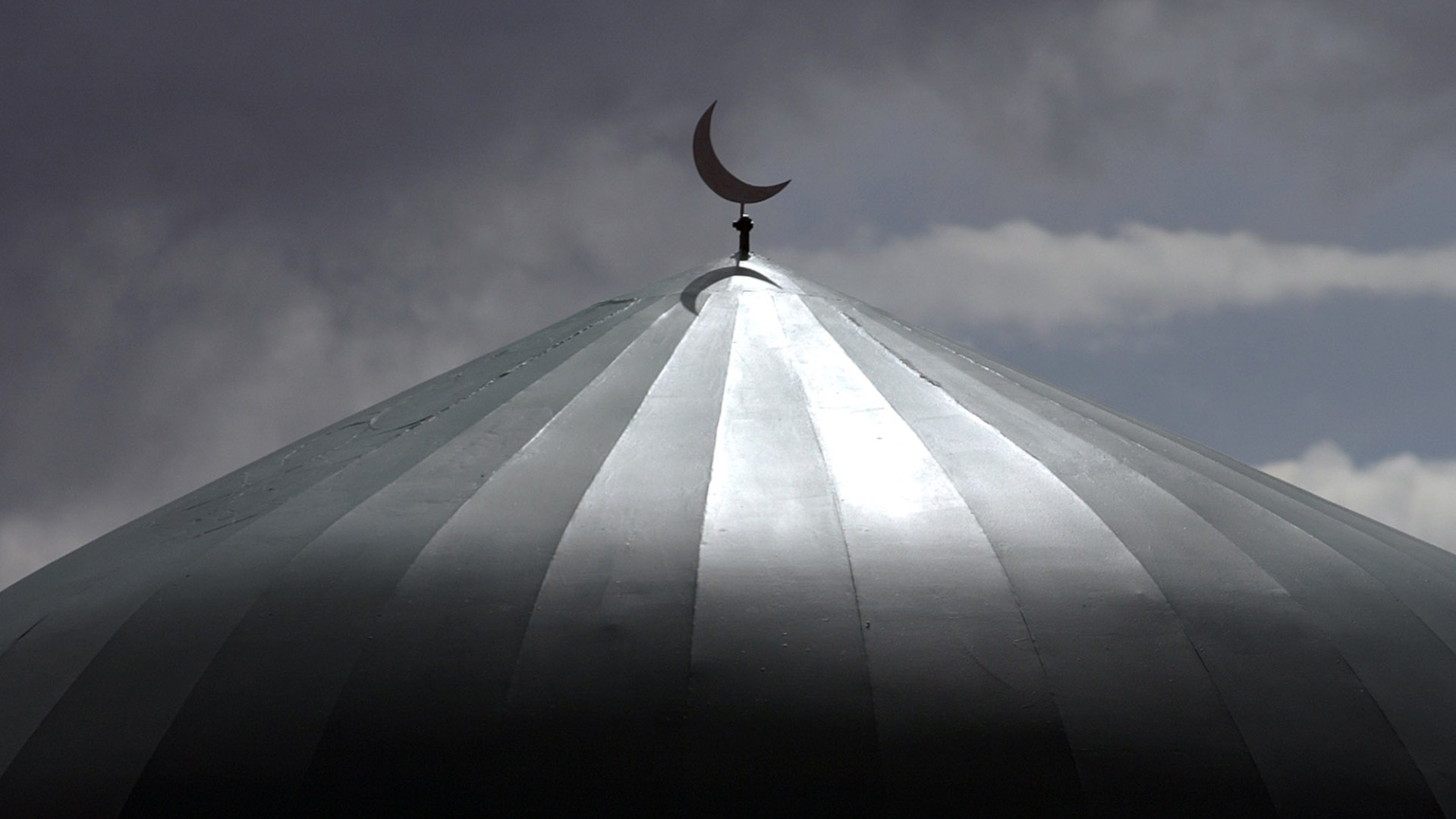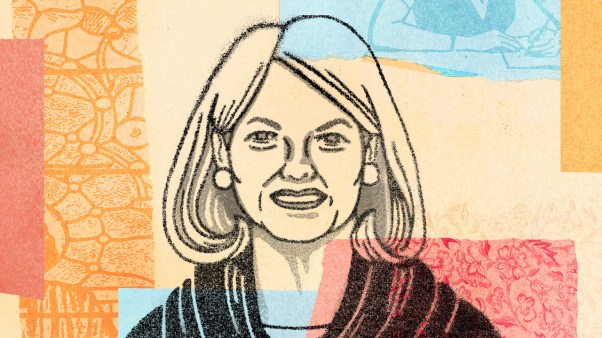Last Friday, Muslim worshipers at two mosques in Christchurch, New Zealand, suffered a terrorist attack at the hands of an avowed white supremacist. 50 people were killed, with another 50 injured.
Prior to the attack, the citizen of Australia posted a lengthy manifesto to social media, filled with anti-immigrant and anti-Muslim themes. He then proceeded to livestream the shooting. Some victims originally hailed from Pakistan, Turkey, Saudi Arabia, Jordan, Bangladesh, Indonesia, and Malaysia.
Given recent attacks on Christians in their places of worship, including many in Muslim nations, CT invited evangelical leaders to weigh in: How should Christians respond to Christchurch?
Richard Shumack, director of the Arthur Jeffery Centre for the Study of Islam at Melbourne School of Theology, Australia:
The thing that came to mind immediately is Jesus’ beatitudes. How should Christians react to Christchurch? With mourning, a hunger for justice, and peacemaking. Christians must mourn with their Muslim brothers and sisters, thirst for the perpetrators of this heinous crime to be brought to justice, and put every possible effort into brokering peace in an age of furious tribalism.
I also embrace wholeheartedly the poignant wisdom of Dostoevsky quoted by the Anglican bishop of Wellington, New Zealand: At some ideas you stand perplexed, especially at the sight of human sins, uncertain whether to combat it by force or by humble love. Always decide, “I will combat it with humble love.” If you make up your mind about that once and for all, you can conquer the whole world. Loving humility is a terrible force; it is the strongest of all things and there is nothing like it.
Mark Durie, Anglican pastor from Melbourne, Australia, and author of books on Islam:
Alexander Solzhenitsyn observed that “to do evil, a human being must first of all believe that what he is doing is good.” Brenton Tarrant, the accused Christchurch killer, wrote that his violence was intended to usher in a racial war between whites and immigrants, whom he calls “invaders.”
This law-of-the-jungle genocidal purpose is an utter repudiation of the core of Christianity. Jesus taught the opposite: to love our neighbor as our very selves. In a fitting answer to this hatred, countless expressions of solidarity with the Muslim victims have been coming in from around the globe.
Christians living in Muslim countries today are far more likely to be killed for their faith than are Muslims living in the West, yet the teachings of Jesus are an antidote to dogmas of hatred. The true followers of Jesus will be quick to show compassion and care for the suffering victims of this appalling tragedy.
Martin Accad, director, Institute of Middle East Studies at Arab Baptist Theological Seminary (Lebanon), and associate professor of Islamic Studies, Fuller Theological Seminary:
The main thoughts that have been running through my mind after hearing of the New Zealand shootings is that the church has a crucial responsibility to play in this tragedy.
Admittedly, the shooters did not claim a Christian worldview or motivation, but rather seem to have been motivated by racism, white supremacy, and xenophobia. However, Christians must search their souls for any contribution they might have made to the current shape of our societies’ attitude towards Islam and Muslims.
Our churches are feeding on too many aggressive, polemical, and fearful writings about Islam and Muslims. Many books written by evangelicals in recent years contribute to fear and xenophobia instead of fighting these feelings and reactions with the loving and peaceful attitude that our Lord Jesus taught us and modeled for us.
The church at this juncture has to work aggressively on fighting these perceptions by putting out new research and writing that emphasizes the common ground and heritage of Christianity, Islam, and Judaism. We must inaugurate a new trend of thinking and writing that sees Muslims as neighbors, and Islam, its prophet, and its holy book as grounds for dialogue and peace-building in celebration of what unites us and serves as bridges between us. It is on common ground that we will be able to work towards multifaith societies built on coexistence in search for the common good. It is in the context of such societies that we will be able to proclaim the uniqueness of Jesus and his love that attracts us to God and invites us into his salvific Kingdom.
John Azumah, professor of World Christianity and Islam, Columbia Theological Seminary, and the Lausanne Movement’s Catalyst for Islam:
I am just heartbroken for the families—innocent men, women, and children—many of whom fled to New Zealand for refuge, a majority Christian country with all the biblical teaching and injunctions about caring for strangers and the vulnerable. And yet, that was the place 50 of them were slaughtered, in their places of worship. What can anyone, any Christian, say about this except to cry out maranatha (come quickly, Lord!)?
As a Christian, I am very worried about the radicalization of Muslims and the discrimination, persecution, and hatred directed towards Christians around the world. But what troubles me more is the way radical Islam is radicalizing Christians along the way. In fact, it seems to me that radical Islam is now defining Christian witness and filling Christians with fear, hatred, and even violence. This is what deeply troubles me.
I am not sermonizing that Christians should love Muslims. I am troubled about what fear and hatred is doing to our witness—and even more importantly, what it is doing to our congregation members. These are unhealthy emotions which do not hold well for the wellbeing of individual members and the whole body of Christ.
We have to resist the temptation of deploying the same weapons the enemy is using: be it conspiracy theories and outright falsehood to preach fear and hatred, or the use of violence against anyone, least of all the most vulnerable. Otherwise, we become the mirror image of the enemy we say we are fighting.
Rather than demonizing Islam and all Muslims, the church needs to identify and work with Muslim scholars and leaders who oppose the radicals and militants in their midst. Just as the extremist elements within Islam have hijacked the Islamic faith, Christians need to be mindful not to allow extremist fringe groups like white supremacists to highjack the Christian faith and witness.
Bob Roberts, founding pastor of NorthWood Church in Texas:
First, Christians should unequivocally condemn this as a terrorist act that is wrong. No quasi- or weak supporting statements that could be construed as less than condemnation of this act of terror. A verbal full-throated rejection of “white supremacy” is also very important. Let there be no doubt where we stand.
Second, Christians should intentionally reach out and verbally affirm Muslims’ right to worship and their personal support of that as well. This should be a moment to reach out to your Muslim neighbors and invite them to your home and build those bridges.
Third, Christians should stand up against hate speech any time and any place they hear it. Our country’s intense polarization, unrestrained speech, and incivility has created a culture that is destroying all of us. Dehumanizing, labeling, and the belittling of races, religions, and hurting people at the lowest levels of society is the ultimate sin of arrogant and self-centered people. Social media has taken hate to new levels.
Fourth, your church should visit a mosque on Friday and pass out flowers or statements of support. The pastor could also invite the imam to church Sunday and publicly tell him they support their right to religious freedom—and pray for them.
And don’t forget all that Jesus stuff about loving God and your neighbor, the “least of these” in hunger, thirst, shelter, prison, and homeless, and that you’ll be judged before God for what you do.
Sara L. H. Shady, professor of philosophy, Bethel University, and author of From Bubble to Bridge: Educating Christians for a Multifaith World:
While we lament the terrorist attacks in New Zealand as yet another tragic reminder that the world is not as it should be, we must remember the words of 1 John 4:18: There is no fear in love, but perfect love casts out fear.
There is no better response to violence rooted in hatred and fear than a persistent commitment to love God and love all neighbors. We can do this by speaking out against Islamophobia around the world, as well as by showing compassion and support for Muslims in our own neighborhoods and communities.
May our words and actions promote the peace of God throughout the world and cast out all forms of hatred and fear.
Johnnie Moore, president of the Congress of Christian Leaders and commissioner in the US Commission for International Religious Freedom:
I felt sick to my stomach. Then I thought about how often I have been the recipient of condolences from Islamic leaders around the world at the first news of an extremist attack on a church, as well as other profound actions of Islamic solidarity with persecuted Christians.
Muslims in Egypt circled around Cairo’s largest evangelical church to protect it from extremists during the Arab spring, and in the last two years alone several Muslim police officers have died in multiple countries protecting churches from extremists. For their heroism, they received praise from Sunni Islam’s al-Azhar University, which issued a decree honoring them as “martyrs.”
These are the stories that the extremists—whether they are neo-Nazis, white nationalists, anti-Semites, or Islamists—do not want us to tell because they degrade the “clash of civilizations” narrative they promote. Yet these are the stories that we must tell; and these are the friendships we must build, as Christians, and especially as evangelicals.
I’m very proud of the unbelievable strides we’ve made between evangelicals and Muslims in recent years, at a local level and at the highest level, and in every corner in the world. While one cannot rush trust, we must expedite these efforts, and extend them to all other religious communities. Orthodoxy—even the exclusivist kind—is not at enmity with friendship.
That's why I grabbed my phone off my bedside table and shot off a simple tweet, that was shared by tens of thousands of Muslims around the world, including in New Zealand: “Nothing is more evil than killing someone at prayer. Muslims have stood in solidarity w/ Christians when their churches have been terrorized; today, Christians stand in solidarity w/terrorized Muslims. Mourning w/those who mourn; Weeping w/those who weep. بسم الله الرحمان الرحيم.”
Joseph Cumming, pastor of the International Church at Yale University, has worked among Muslims for three decades and travels regularly to the Middle East, North Africa, and Asia as an advisor to Muslim, Christian, and Jewish leaders:
Friday’s right-wing extremist, white nationalist terror attack on Muslims at prayer transported me in memory to October 1993, when a terrorist attacked the Catholic Cathedral in the Islamic Republic of Mauritania before Mass, gravely wounding and nearly killing two friends of mine—Fathers René and Paul.
The attacker told police I was his next intended target, and might have been his first. That was a frightening time for my wife and me with our twin toddlers, living nearby. We were deeply grateful for every Mauritanian Muslim who spoke out in solidarity with us or reached out to us in love.
Jesus says we must do unto others as we would have them do unto us. Do we want Muslims to speak out defending Christians targeted by terrorists overseas? Do we want Muslims to reach out in love to support their suffering Christian neighbors? Then we must speak out defending Muslims. We must reach out to Muslim neighbors, communicating love and support.
This is a frightening time for Muslims in America, as it was for Tree of Life Synagogue, for Mother Emanuel Church, and others. This time is also an opportunity to demonstrate the perfect love which the Bible says overcomes fear.
Warren Larson, senior research fellow and professor at the Zwemer Center for Muslim Studies, Columbia International University:
Images of what a 24-year-old white male did at a mosque in Christchurch reminded me of something: “We have seen the face of evil and it is us.”
We may have thought that the greatest threat in the 21st century is Islamic terrorism. It is a threat; but equally so is our own bigotry, hatred, and racism toward others who are a little bit different. Islamophobia is turning into Muslim-phobia, and it may be time to think of Muslims as a persecuted minority in certain contexts.
Besides, if we want them to stand up for Christians against Islamic terrorists, we need to speak up, and stand up, when they are targeted. Didn’t Jesus say, “Do unto others as you would have them do to you?” We must, therefore, take the initiative and respond with courteous acts of kindness, warmth, and generosity to Muslims in our midst.
Albert Einstein put it this way, “The world is a dangerous place to live, not because of the people who are evil, but because of the people who don’t do anything about it.”
Robert Nicholson, president of The Philos Project and editor of Providence magazine:
The killing of Muslims in a house of worship is appalling and must be condemned. But it reminds me that the West, and Christians in particular, need to have a serious and thoughtful conversation about Islam. Eighteen years after 9/11, I’m not sure we’ve even started one.
The crisis between Islam and Christianity is real—or at least, many Muslims and Christians perceive it to be real as social media reactions after the Christchurch massacre showed. The pent-up frustration is reaching a fever pitch. Liberals try to paper over differences between the two communities in a quest for positive consensus, but that approach doesn’t resonate with believers on either side.
The time has come for an honest and direct, albeit respectful, conversation between conservative Muslims and Christians. A conversation that begins from a recognition of difference rather than similarity. Only a no-holds-barred approach to tough questions can begin to help the two sides speak freely, listen intently, and begin to understand each other on their own terms. In the aftermath of Christchurch, Christians should lead the way.
Efraim Tendero, secretary general of the World Evangelical Alliance (WEA), issued a joint official statement with the New Zealand Christian Network (NZCN):
The New Zealand Christian Network “has expressed horror and great sadness about the violent attacks today on Muslim people and mosques in Christchurch.” NZCN spokesperson Stuart Lange called the attack “utterly appalling” and said it “will be deplored by all New Zealand people of all faiths or none.” The network urges people to pray for all the families and communities which will be deeply affected, and to offer them support in every way possible.
Efraim Tendero, secretary general and CEO of the WEA, said: “With this terrorist attacks at Christchurch, we are once again reminded of the intertwined and deadly nature of prejudice and extremism, how it seeks to destroy and sow enmity among peace-loving people and communities. As followers of Jesus Christ, the Prince of Peace, we condemn such violence and state in the clearest terms that there is no justification whatsoever to commit such a heinous crime against people of any faith or no faith.
“We mourn with the families of those who have lost loved ones in this tragic attack and pray for God to give comfort and healing to them as well as the community. As we all seek accountability and justice for all the victims of this tragedy, we are convinced that in crucial times such as this we need to all the more demonstrate the best in humanity by not repaying evil with evil, but by overcoming evil with good (Romans 12:21).
“As a global family of evangelical Christians—a diverse family that includes people of all complexions, ethnicities, languages, cultures, and social standings—we are committed to upholding that according to the Bible, God has created each human being in his image, which gives eternal value to each individual life. It is our hope and prayer that rather than dividing the community with hatred, this tragic event will bring the community together in condemning such hatred and that they would reach out to each other across any social or cultural barriers to extend comfort and support at this time.”
(The attack came on the same day the WEA presented an oral statement at the United Nations Human Rights Council in Geneva that denounces nationalism. Furthermore, as part of its effort to build bridges of respect and understanding between people of different faiths and no faith, the WEA has also been engaged in dialogue with Muslims for many years. A recent example is Tendero’s participation in the Global Conference on Human Fraternity in Abu Dhabi last month.)









